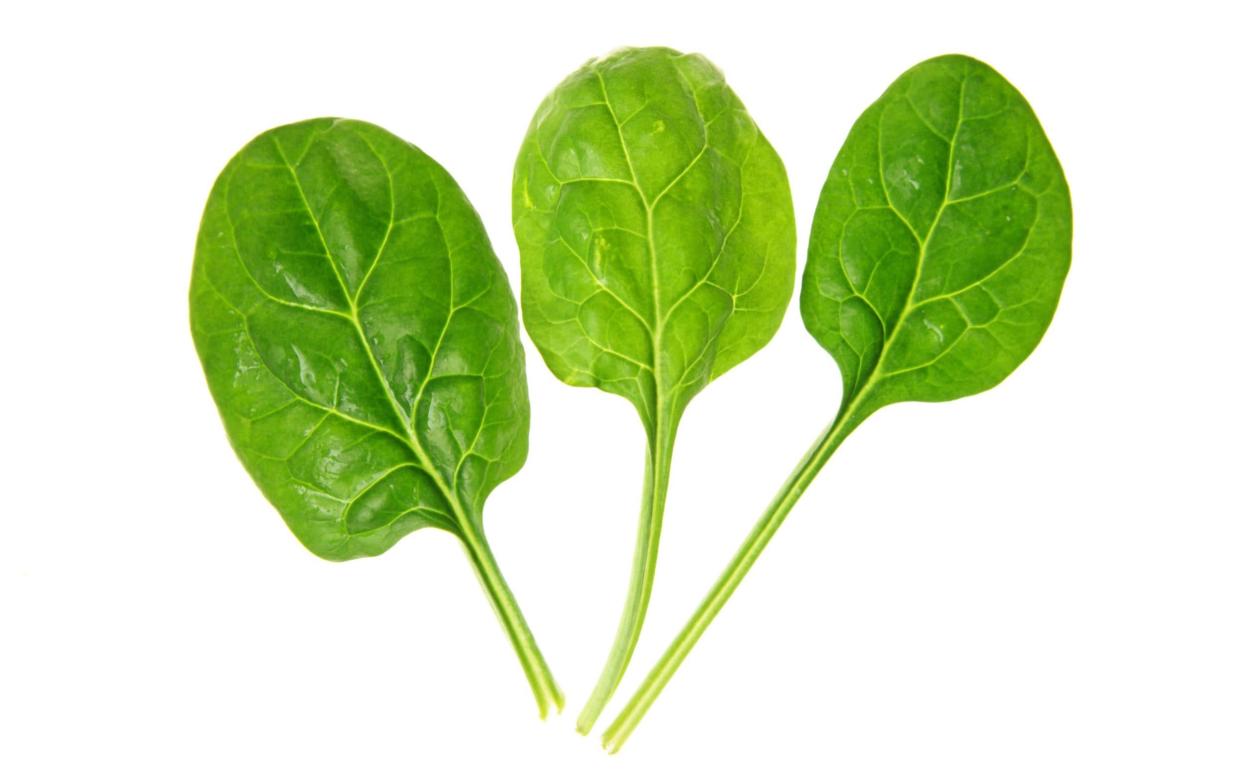Spinach taught how to send emails in MIT study that could help warn of climate change

Spinach plants have been taught to send emails to scientists in a groundbreaking MIT discovery which could lead vegetables to warn humans of climate change.
The plants, with their complex and sensitive root systems, are incredibly good at detecting changes in soil. If these messages can be intercepted by humans, plants could warn of chemical changes which indicate the presence of landmines, as well as pollution and incoming droughts.
They are evolved to be hyper-sensitive to their surroundings and any change to the light, temperature and chemicals in the area they grow.
If scaled up, this new email technology could also be invaluable to farmers, as the plants are able to sample water content in the soil and the presence of nutrients better than any man-made device.
Researchers have managed decode these messages, turning spinach into sensors capable of detecting explosive materials, and enabled the plants to "email" results back to the scientists.
It works because when the spinach roots detect the presence of nitroaromatics, which is a compound often found in explosives, the plant uses carbon nantotubes in its structure to emit a signal. This can then be read by an infrared camera, which pings an email to the scientists.
“Plants are very good analytical chemists,” explained Professor Michael Strano who led the research.
“They have an extensive root network in the soil, are constantly sampling groundwater, and have a way to self-power the transport of that water up into the leaves.”
“This is a novel demonstration of how we have overcome the plant/human communication barrier,” he added.
This is the start of a new field of research aimed at giving plants new abilities and helping them communicate with humans. The process is called plant nanobiotics.
The plants could be used to detect all manner of changes in the soil, and could be useful to warn of pollution and other environmental hazards.
“Plants are very environmentally responsive,” Prof Strano explained.
“They know that there is going to be a drought long before we do. They can detect small changes in the properties of soil and water potential. If we tap into those chemical signalling pathways, there is a wealth of information to access.”
Spinach could help the environment in other ways, too - the researchers also found that it can help make batteries more efficient when ground into a fine powder.
When the plant is ground into carbon nanosheets, it can function as a catalyst to help make metal-air batteries and fuel cells more efficient.
These batteries have been looked at as an alternative to lithium batteries in smartphones, which are less environmentally friendly.
Researchers chose spinach because it is high in iron and nitrogen, which both are important elements in compounds that act as catalysts.
“This work suggests that sustainable catalysts can be made for an oxygen reduction reaction from natural resources,” said Professor Shouzhong Zou, who led the paper.
“The method we tested can produce highly active, carbon-based catalysts from spinach, which is a renewable biomass," he added. "In fact, we believe it outperforms commercial platinum catalysts in both activity and stability.”

